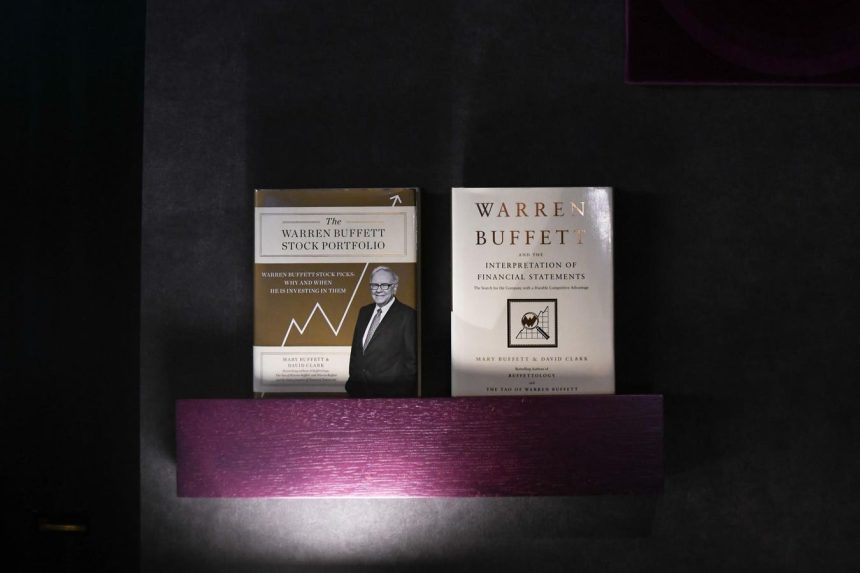Interest rates are finally on the decline again, leaving investors considering where to focus their money next. At this point, the markets could tip in either direction, as the Fear and Greed Index sits at neutral right now, and economic and market pundits are sharing a wide array of commentary that calls for everything from a recession to a soft landing or even the potential for a continuation of greener pastures.
In recent years, the runaway valuations of growth stocks have caused some investors to think value investing is dead, but that couldn’t be further from the truth. Interviews with multiple fund managers revealed four reasons why value investing is not dead.
1. Valuation will always matter
First, Will Nasgovitz of Heartland Advisors told me that valuation will always matter. On one hand, some investors have been shelling out money on some stocks with no regard to valuation amid extreme market euphoria.
Nonetheless, many others still use a wide array of multiples and other methods to determine a company’s intrinsic value and determine whether they might be overpaying for a company. Considering valuation just makes sense because market euphoria is not a constant phenomenon. At some point, bubbles pop.
“Within our process, while we traditionally look at P/E, our ninth principle is valuation,” Nasgovitz said. “Our analysts look at the most appropriate multiple for each business and ascertain if the risk/reward is compelling. Strategic and financial buyers are going to pay attention to valuation. It’s applicable to all investing, more to value than other strategies.”
2. The markets are not completely efficient
Second, Seth Weingram of Acadian Asset Management pointed out that value investing can mean a variety of different things. He believes certain forms of value investing will always work because the markets are never totally efficient.
As it’s used in popular discussion, the term value investing can mean almost anything,” Weingram told me. “In a broad sense, the concept of value implies looking at market price relative to some fundamental measure of what the company is worth. It’s hard to imagine that the notion of finding discrepancies between the two would be obsolete. We know those things diverge quite often, and the idea that somehow this general philosophy of investing would stop working doesn’t compute. It’s tantamount to saying that markets are completely efficient or totally irrational. We don’t believe that.”
3. Value investing usually outperforms when people are concerned
Recalling a famous quote from Warren Buffett, Phil Pecsok of Anacapa Advisors pointed to specific market environments in which value typically outperforms. Those who don’t consider valuation during periods of market euphoria may be left naked and shivering when the tide goes out.
“Value investing is never dead. There are cycles when growth does better and times (usually when the market falls) when value does better,” Pecsok opined to me. “Value is usually better when people are concerned; usually after market drops, they want to know that the equity that they own still has value. It was Warren [Buffett] who said, ‘Only when the tide goes out do you discover who’s been swimming naked.'”
4. Value investing leads to constant mispricing
Similarly, David Samra, managing director of Artisan Partners and founding partner of Artisan Partners International Value Team, noted in an interview that the fear-and-greed cycle is a constant factor in the stock market.
“Value investing is a philosophy of buying a business below its observable value,” he said. “By definition, it cannot be a misguided principle. The stock market is driven by greed and fear, leading to a consistent process of mispricing. Value investing aims to take advantage of mispricing when there is fear in the market.”
Of course, Buffett also famously advised investors to be greedy when others are fearful, which is why mispricings occur during periods of fear.
Why value investing may need to change
Although value investing certainly isn’t dead, Samra pointed out some problems with the way many investors practice this method today. He also noted that some of the products Wall Street sells around value investing have underperformed in aggregate over the last decade.
“That is because the Wall Street products are factor based,” Samra added. “These products are unlikely to perform well over time because the factors considered generally favor businesses with low returns and slow growth. While these businesses are quantitatively cheap, they are not fundamentally undervalued.”
According to Samra, the key to value investing isn’t buying businesses with low valuations. It’s buying businesses with valuations that fail “to reflect [their] true economic characteristics.
“That is a major difference, and the investor that understands that difference can earn extraordinary economic returns,” he said. “When value investing is practiced correctly—where an investor purchases the shares of very good companies with strong balance sheets and high returns at discounted prices — investors are positioned to not only earn superior returns, but also manage risk in an advantaged manner. That is a very intelligent way of allocating capital, and one that very rarely gets defined as value investing.”
The need to dig deep
Weingram also said more generic forms of value investing using various indicators have been in trouble in terms of performance, not just in recent years but over longer periods. As a result, he advised a more nuanced approach.
“The performance of value investing has also varied depending on how and where you’ve implemented it. It has really mattered whether you’re looking at asset- or income-oriented value indicators and whether you’re applying nuanced valuation measures that raise the signal-to-noise ratio.” Weingram explained. “Also, a lot of folks are generalizing observations based on large-cap U.S. stocks, but value has held up in smaller caps and markets outside the U.S.”
Read the full article here
















